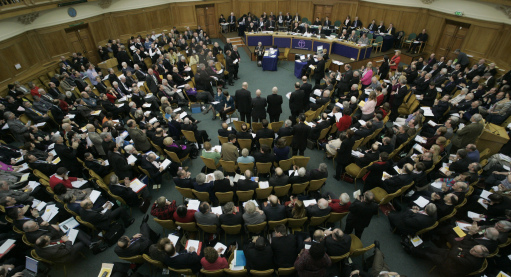Church says women bishops situation 'unsustainable'

Leaders in the Church of England have reiterated their determination to move forward with women bishops.
The House of Bishops met this week at Lambeth Palace, the official residence of the Archbishop of Canterbury, to consider the implications of last month's defeat in the General Synod of legislation to admit women to the episcopate.
In a statement, the House expressed its "ongoing gratitude" for the ministy of ordained women in the Church of England, as well as sadness that the events of last month "left so many feeling undermined and undervalued".
"Effective response to this situation is a priority on which all are strongly agreed," the bishops said.
"The House acknowledged the profound and widespread sense of anger, grief, and disappointment felt by so many in the Church of England and beyond, and agreed that the present situation was unsustainable for all, whatever their convictions."
Discussions were joined by the Very Reverend Viv Faull, the Venerable Christine Hardman, Dr Paula Gooder, and Mrs Margaret Swinson, who had all previously served on the Steering Committee or Revision Committee for the legislation.
The House of Bishops will be working on fresh proposals to put before the General Synod at its next meeting in July.
An event to take place early in the new year will share with a larger number of lay and ordained women questions about the culture of the House's processes and discussions, and how women might more regularly contribute.
The House of Bishops has also set up a working group drawn from all three houses of Synod to avoid further delay in preparing the new legislative proposals. The make-up of the working group will be decided by the Archbishops and announced before Christmas.
The working group will arrange facilitated discussions to take place next February, which will then be followed up with an additional meeting of the House of Bishops. Details of the new legislative package are to be finalised in May.
The House of Bishops said it would be working to formulate proposals with a "greater simplicity" in order to give them the greatest possible chance of achieving assent.
In its conclusions, the House endorsed the view of the Archbishops' Council that the "Church of England now has to resolve this issue through its own processes as a matter of great urgency".











